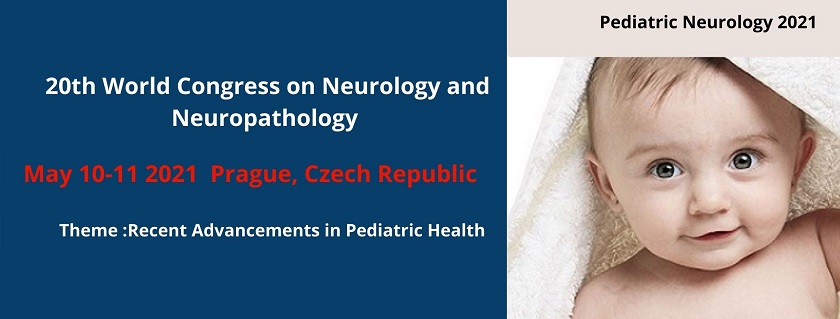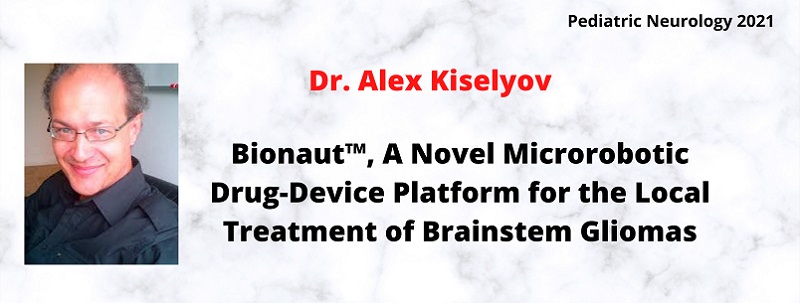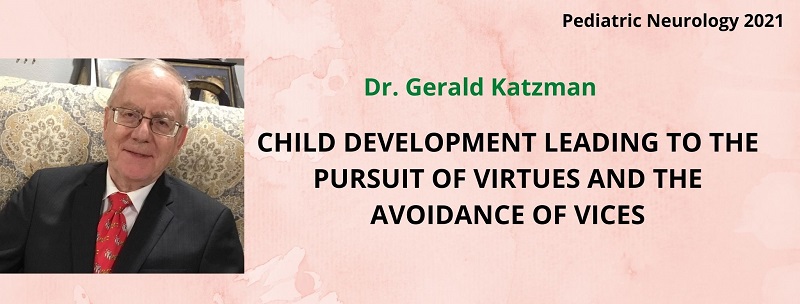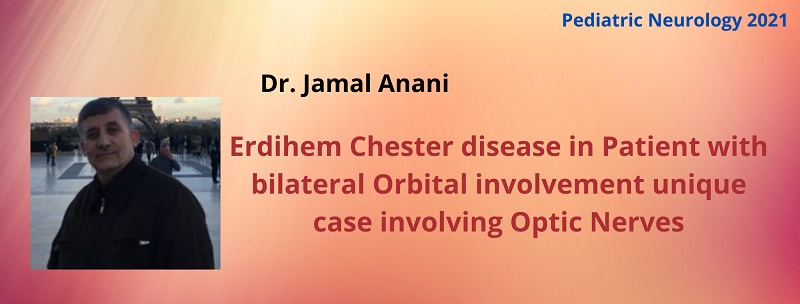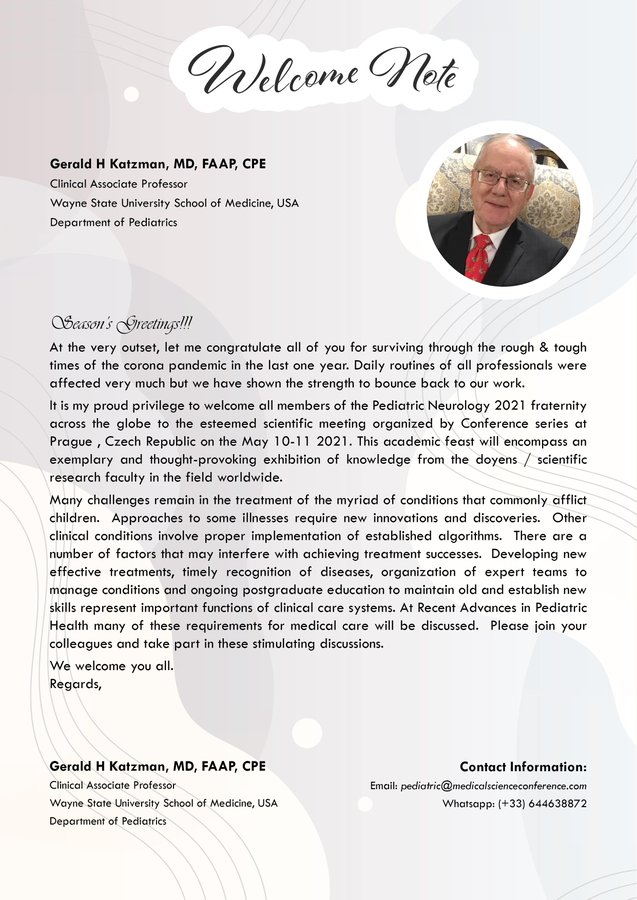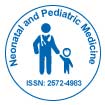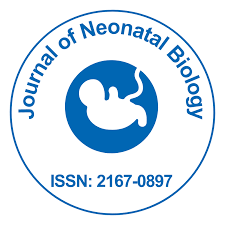Theme: Recent Advancements in Pediatric Health
Pediatric Neurology 2021
It is our great pleasure to invite you to take part in the 20th World Congress in Neurology and Neuropathology which is mainly focusing on how "Advancements and Revolutions in the Fields of Pediatrics Research and Development and in the field of Pediatric Neurology and Neuropathology is scheduled to be held on May 10-11, 2021
The main objective of Pediatric Neurology 2021 is to bring together pediatricians, neonatologists, experts in child development and other specialists to exchange their ideas and knowledge between the different disciplines for facilitating research and clinical interdisciplinary collaborations.
The Conference includes the following areas:
Pediatrics, Pediatric Nursing, Paediatric Cardiology, Pediatric Surgery, Pediatric Neurology and Neurological Disorders, Pediatrics Obesity, Pediatric Urology and Nephrology, Pediatric Respiratory Disorders, Pediatric Nutrition and Baby Foods, Pediatric Dermatology, Pediatric Oncology, Pediatric Ophthalmology, Pediatrics Emergency Medicine
Young research Forum
Pediatric Neurology 2021 is intended to honor prestigious award for talented Young researchers, Scientists, Young Investigators, Post-Graduate students, Post-doctoral fellows, Trainees, Junior faculty in recognition of their outstanding contribution towards the conference theme. The Young Scientist Awards make every effort in providing a strong professional development opportunity for early career academicians by meeting experts to exchange and share their experiences on all aspects of Pediatrics.
Young Research’s Awards at Pediatric Neurology 2021 Conference is for the Nomination:
Young Researcher Forum - Outstanding Masters/Ph.D./Post Doctorate thesis work Presentation and only 25 presentations acceptable at the Pediatric Neurology 2021
YRF Registration Benefits:
- Learn about career improvement with all the latest technologies by networking.
- Provide an opportunity for research interaction and established senior investigators across the globe in the field of Pediatrics.
- It’s a great privilege for young researchers to learn about the research areas for expanding their research knowledge.
Warm welcome to the International conference on 20th World Congress on Pediatric Neurology and Neuropathology which is going to be scheduled during May 10-11, 2021 Prague, Czech Republic. Pediatric Neurology-2021 brings upon a new platform to share new ideas and discuss all the innovations in the field of Pediatrics Health .
Meet the world eminent specialists and speakers at our conference to speak concerning new advances within the field of Pediatrics Health to develop more innovations that introduced in the field of Pediatrics. This will offer a great platform for students and researchers to exhibit their work and obtain recognized amidst the foremost individuals.
I would wish to invite you all for this Pediatric Neurology 2021 to share your views on Pediatrics Health.
1. Pediatrics
The study of pediatrics is diminishing the mortality rates of the new-born’s and the youngsters and furthermore to control the spreading of diseases which are pediatric infectious diseases and which will be advancing the healthy life form infections-free life to draw out the issues of teenagers and kids. This can be seen that the improvement of pediatrics is ended by knowing the different pediatric hereditary issue essential subjects which for the most part required for pediatrics. The vital treatment which bargains in pediatrics is supporting the expansion of pediatric wellbeing in youngsters and babies.
• Pediatric Nutrition
• Pediatric Vaccination
• Pediatric Nursing
• Pediatric Obesity and Weight Management
• Neonatal Intensive Care
• Paediatrics Dermatology
• Paediatric Cardiology
• Pediatric Gastroenterology
• Pediatric Oncology
• Pediatric Dentistry
• Pediatric Respiratory System
• Pediatric Opthalomology
• Pediatric Allergy and Infections
2.Pediatric Movement Disorders
Pediatric movement disorders is a relatively new and growing field of child neurology. Whereas hypokinetic disorders such as Parkinson disease predominate in adults, children more commonly demonstrate hyperkinetic disorders such as tics, tremor, chorea, and dystonia. There are a large number of genetic and heredodegenerative diseases which cause secondary movement disorders in childhood. Advances in pediatric movement disorders have been made by solidifying movement disorder definitions, expanding the spectrum of clinical phenotypes, understanding genetic causes of movement disorders, and rigorously evaluating treatment efficacy for common movement disorders.
3.Pediatric Pharmacology and Drug therapy
Children differ from adults in several aspects of pharmacotherapy, together with capabilities for drug administration, medicine-related toxicity, and taste preferences. It is essential that Pediatric medicines are developed to best suit a child’s age, size, physiologic condition, and treatment needs. To ensure adequate treatment of all children, completely different routes of administration, dosage forms, and strengths may be needed. Clinicians need population-specific, evidence-based clinical tools to produce safe and effective drug therapy support for neonatal and Pediatric patients. These clinical tools should be up-to-date, evidence-based drug dosing information, as well as functionality that provide warnings for inappropriately entered dosage values.
4.Pediatric Neurochemistry and Neuroscience
Neurochemistry is the study of chemicals, including neurotransmitters and other molecules such as psychopharmaceuticals and neuropeptides, that control and influence the physiology of the nervous system of children. This field within neuroscience examines how neurochemicals influence the operation of neurons, synapses, and neural networks. Neurochemists analyze the biochemistry and molecular biology of organic compounds in the nervous system of children, and their roles in such neural processes including cortical plasticity, neurogenesis, and neural differentiation.
5.Pediatric Neuromuscular Disorders
The neuromuscular system includes all muscles throughout the body and the nerves that connect them. There are a wide variety of neuromuscular disorders that can occur in children. These conditions impact the peripheral nervous system, which includes the muscles, neuromuscular (nerve-muscle) junction, peripheral nerves in the limbs and motor-nerve cells in the spinal cord.
6.Pediatric Neuro-immunology Disorders
Autoimmune disorders are diseases in which the body’s immune system attacks healthy tissue. These disorders can affect many different parts of the body. Autoimmune disorders that affect their central nervous system(the brain and spinal cord). These disorders can affect a child’s ability to eat, walk, talk, think or move normally.
7.Pediatric Neuroimaging and Neuro Radiology
Neuroimaging refers to techniques that produce images of the brain without requiring surgery, incision of the skin, or any direct contact with the inside of the body. Because these technologies enable non-invasive visualization of the structure and functionality of the brain, neuroimaging has become a powerful tool for both research and medical diagnosis. Common methods include positron emission tomography (PET), functional magnetic resonance imaging (fMRI), multichannel electroencephalography (EEG) or magnetoencephalography (MEG), and near-infrared spectroscopic imaging (NIRSI). PET, fMRI, and NIRSI can measure localized changes in cerebral blood flow related to neural activity.
8.Recent Trends in Pediatric Surgery and Neurosurgery
Neonatal and Pediatric Surgery is a broad field with many challenges. The treatment of neonates with oesophageal has been one of the main challenges for pediatric surgeons. The current survival rate is 93%. Much of this improvement is due to the close collaboration between pediatric surgeons, neonatologists, intensivists, anesthetists and nurses. Over the last decades, because of the development of several clinical and technological advances, there has been a revolution in the management of neonatal and pediatric patients. This progress reported an improvement in the survival rate of extremely ill neonates, who now have the chance to survive into adulthood. The intent of this review is to highlight not only the advances obtained in the neonatal surgery but also the results of a multidisciplinary work focused on the fetus, preterm and newborn baby with a surgical anomaly or disease. Attention is also paid to the recent tendency to share knowledge, protocols, and database out of the single Institution or country and to follow these delicate and fragile neonatal patients to the adulthood, developing the transitional care.
9.Pediatric Neurogenetics and Neurodegenerative Disorders
Pediatric neurogenetic disorders are diseases of the brain, spinal cord, nerves and muscles that are caused by changes in genes or chromosomes. There are hundreds of neurogenetic disorders that may present in very different ways. They may cause problems from birth or only become evident in later childhood.
Oftentimes medications such as non-steroidal anti-inflammatory drugs (NSAIDs), acetaminophen, or opiates are used to manage the pain. Additionally, non-pharmacological can also be used to manage the child's pain, this includes distracting the child, massages, acupuncture, heat/cold therapy, exercise, and quality sleep.
11.Behavioural and Developmental Disorders
Mental health problems in children and adolescents include several types of emotional and behavioural disorders, including disruptive, depression, anxiety and pervasive developmental (autism) disorders, characterized as either internalizing or externalizing problems. Disruptive behavioural problems such as temper tantrums, attention deficit hyperactivity disorder, oppositional, defiant or conduct disorders are the commonest behavioural problems in preschool and school age children.
12.Neuro-Ophthalmology and Sleep Disorders
Neuro-Ophthalmology is a specialty that concentrates on the neurological problems related to the eye. Like we tend to all apprehend, the human eye captures the visuals it sees and transmits to the brain to be resolved as pictures. There are several parts of the brain that are involved with precise control of eye movements. Difficulty within these regions often produces misalignment of the eyes with resultant double vision.Current proof indicates that inveterately disrupted sleep in children and adolescents will result in issues in psychological feature functioning. Behavioral interventions for Pediatric sleep problems. Children who have sleep disorders could usually exhibit symptoms (inattentiveness, over-activity, restlessness) similar to ADHD.
Pediatric nursing is the medical care of neonates and children up to adolescence, usually in an in-patient hospital or day-clinic. Pediatrics comes from the Greek words 'paedia' which means child, 'iatrike' which means physician
14.Pediatric Psychological Disorders and Neuropsychiatric Disorders
Pediatric psychology encompasses a wide variety of areas. These areas include developmental, contextual, and psychosocial factors that can contribute to Pediatric psychological and physical issues. It additionally includes the assessment, diagnosis, and treatment of Pediatric medical conditions, prevention of Pediatric medical conditions (physical and psychological), educating the general population on Pediatric health, promoting health-related behaviors, advocating for child and family public policies, and improving Pediatric healthcare delivery services.Cerebral disorders commonly cause psychiatric symptoms. Almost all brain disorders may cause psychiatric symptoms.
15.Neuropathology of Neurodegenerative disorders
Neurodegenerative disorders are characterized by progressive loss of selectively vulnerable populations of neurons, which contrasts with select static neuronal loss because of metabolic or toxic disorders. Neurodegenerative diseases can be classified according to primary clinical features (e.g., dementia, parkinsonism, or motor neuron disease), anatomic distribution of neurodegeneration (e.g., frontotemporal degenerations, extrapyramidal disorders, or spinocerebellar degenerations), or principal molecular abnormality
16.Neuropathology of Neuro-Oncology
Neuro-oncology is the study of brain and spinal cord neoplasms, many of which are (at least eventually) very dangerous and life-threatening (astrocytoma, glioma, glioblastoma multiforme, ependymoma, pontine glioma, and brain stem tumors are among the many examples of these). Among the malignant brain cancers, gliomas of the brainstem and pons, glioblastoma multiforme, and high-grade (highly anaplastic) astrocytoma are among the worst
17.Neuropathology of Brain Tumor
Brain tumor typing is a major task in the daily practice of clinical neuropathologists. For more than 100 years, brain tumors have been classified on the basis of a histogenetic concept, with the definition of more than 120 brain tumor entities over time. In the past decades, biomedical research on brain tumors has led to the identification of clinically meaningful diagnostic, prognostic, and predictive molecular markers.
18. Treatment and advancement in neuropathology
Advances in Neurology and Neuroscience used to study the molecular, cellular, structural, functional, evolutionary, computational, and medical aspects of the nervous system including its diagnosis and treatment.
19. Pediatrics Health care
Pediatric medicine deals with the medical care of infants, children, and adolescents. In the United States, this generally applies to children ages birth to 18 years. Pediatric physicians are referred to as pediatricians.
The Pediatrics market can be calculated in coordination with the infant mortality rate, death rate and the rate of diseases attacked along with the vaccine production and consumption for the child cure. From the total European population, 13% of the pediatrics suffers from clinical diseases.
WHO has estimated that, in 2015, around 15 million of neonates are born every year and approximately one million die due to preterm birth complications. In addition, there is currently a significant increase in the survival of these critically ill patients, and there is a significant global surge in the number of foetal and neonatal care equipment over the years in order to reduce these complications of prematurely born babies. The focus is on reducing the risk of sepsis, and complications in general, with the purpose of reducing the length of hospital stay, and therefore reducing costs, but most importantly, with the neuronal protection that allows good neurological development in the future of these babies. The most important factors for the birth of premature babies include delayed maternity, induced fertility, lack of proper parental care etc; in future the care equipment should see a growth with the help of rapid technological advancements in collaboration with government support. Changes in child care trend increases the prevalence rate of pediatric diseases. This report provides detail information about current scenario of pediatric treatment and expected growth in it.
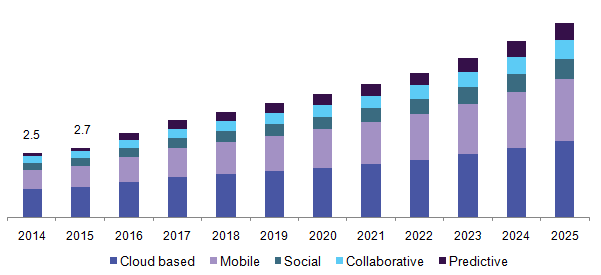
One of the greatest countries North America when took after by Europe in 2015. Likewise, the worldwide market for pediatric cardiology in 2015 is to a great extent commanded by the U.S. because of the expanding cases of heart infections among the kids. Europe is ready to display most elevated development rate amid the conjecture time frame because of the high interests in pediatric health care and services by European people. So, Europe is considered as the second largest market of pediatric health care products and services. The market’s significant rise through 2019 can be attributed to the industry becoming more familiar with designing and implementing trials in the pediatric population. Asia-Pacific is considered as the future market for pediatric health care products and services because of rising awareness on pediatric health care and child health among the people.
Benefits
- In depth analysis of key drivers, restraints and opportunities of pediatric healthcare market with impact analysis.
- Porters five forces model provide macro level analysis of market factors that are influencing the growth.
- Key developmental strategies adopted by top market players engaged in this business to provide better understanding of potential opportunities and challenges in this market
- Market estimation for treatment, therapeutics, duration of disease and geographic segment is derived from current market scenario and expected market trends.
- The report provides for in-depth understanding of the market scenarios in various geographic regions so that key players can make plans to explore opportunities in specific regions.
Past Conference Report
Pediatric Neurology 2020
Conference Series takes a great pride in announcing the commencement of Pediatric Neurology 2020 on 19-20 November through Webinar
Pediatric Neurology 2020 received a gracious response from all over the world. This was carried out with the categorical aim and intention to promote the development of new perceptions and ideas to explore the high level of knowledge reached by the scientific community. The very illustrious conference organized by the Conference Series was marked by the participation of young and brilliant researchers, trade commissioners and talented student communities representing more than 15 countries around the world.The meeting engrossed a vicinity of cognizant discussions on different topics of Agriculture, including
Pediatric Pharmacology and Drug therapy
Pediatric Neurochemistry and Neuroscience
Pediatric Neuromuscular Disorders
Pediatric Neuro-immunology Disorders
Pediatric Neurology
The two days event implanted a firm relation of upcoming strategies in the Pediatric field with the scientific community. The Organizing Committee would like to thank the moderator for there contribution which resulted in smooth functioning of the conference.
The conference witnessed an amalgamation of peerless speakers, who enlightened the crowd with their enviable research knowledge and on various alluring topics related to the Agriculture Field. Conference Series has taken the privilege of felicitating Pediatric Neurology 2020 Organizing Committee, Editorial Board Members and Keynote Speakers who supported for the success of this conference.
Conference Highlights
- Pediatrics
- Pediatric Movement Disorder
- Pediatric Pharmacology and Drug therapy
- Pediatric Neurochemistry and Neuroscience
- Pediatric Neuromuscular Disorders
- Pediatric Neuro-immunology Disorders
- Pediatric Neurology
- Pediatric Neuroimaging and Neuro Radiology
- Recent Trends in Pediatric Surgery and Neurosurgery
- Pediatric Neurogenetics and Neurodegenerative Disorders
- Pediatric Pain Management
- Behavioural and Developmental Disorders
- Neuro-Ophthalmology and Sleep Disorders
- Pediatric Nursing
- Pediatric Psychological Disorders and Neuropsychiatric Disorders
- Neuropathology of Neurodegenerative disorders
- Neuropathology of Neuro-Oncology
- Neuropathology of Brain Tumor
- Treatment and advancement in neuropathology
- Pediatric Health care
To share your views and research, please click here to register for the Conference.
To Collaborate Scientific Professionals around the World
| Conference Date | May 10-11, 2021 | ||
| Sponsors & Exhibitors |
|
||
| Speaker Opportunity Closed | |||
| Poster Opportunity Closed | Click Here to View | ||
Useful Links
Special Issues
All accepted abstracts will be published in respective Our International Journals.
Abstracts will be provided with Digital Object Identifier by

